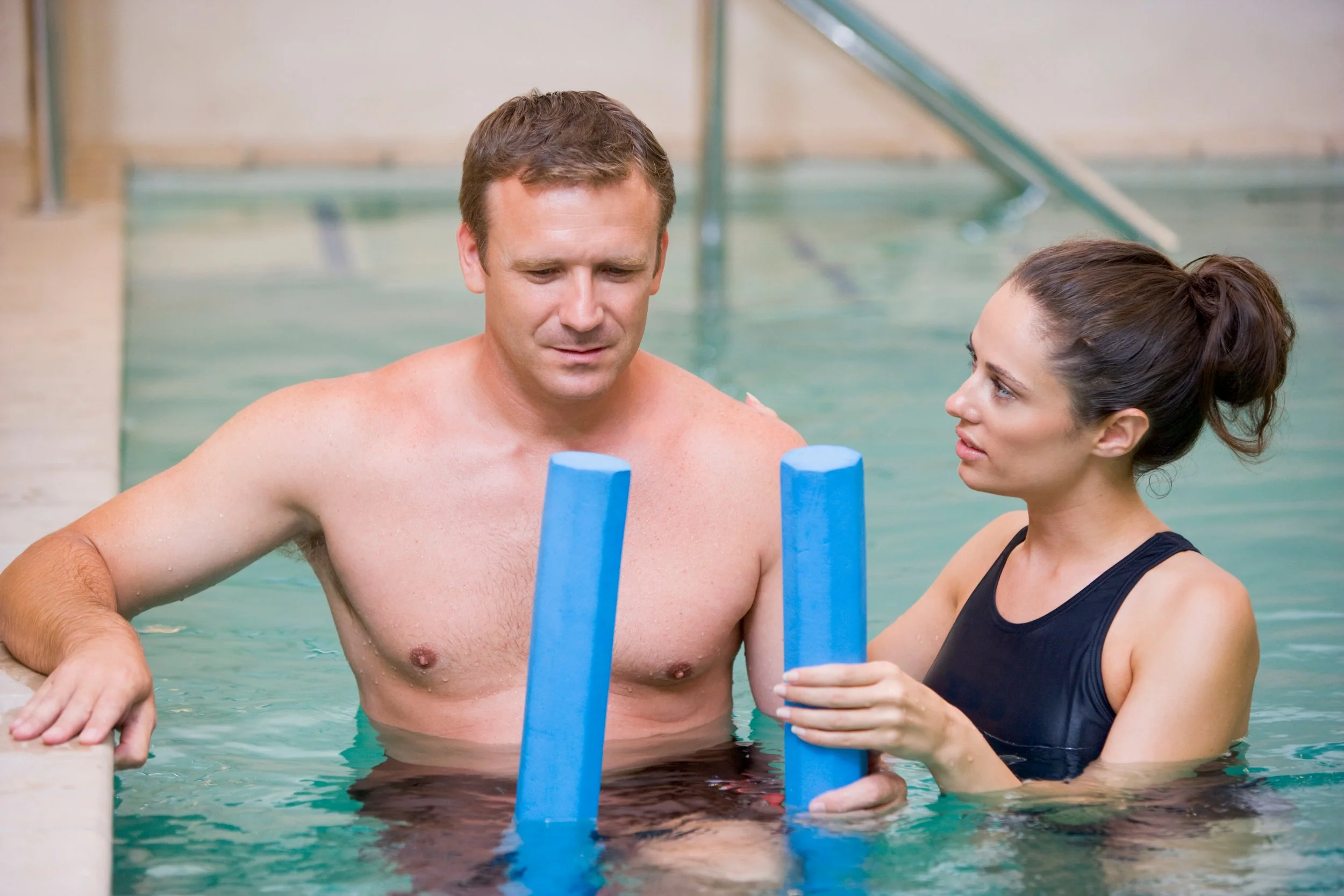Making Waves with Hydrotherapy
Hydrotherapy and it’s benefits!
We chat to our wonderful Exercise Physiologist Liana Paparella about hydrotherapy and what goes into a hydrotherapy session.
“Over the past four years at Resilient Health Group, I have had the privilege of running hydrotherapy sessions with clients of all different ages, health challenges, and goals. Varying from children with neurodivergent disorders (i.e. autism spectrum disorder), or adults recovering from a workplace injury – we provide services that are tailored to your needs.”
“For me, the best part of hydrotherapy is seeing clients enjoy themselves while making meaningful progress. The pool creates an environment where movements that can feel difficult, painful, or even impossible on land become achievable. Over the years, I have supported children who were once fearful of the water gradually build their confidence to the point where they could transition into mainstream swimming lessons. I have also worked with participants in wheelchairs who have been able to experience the joy of walking in the water – a movement that is extremely difficult on land. Watching clients reach these milestones is incredibly rewarding and fuels my passion for what I do.”
Hydrotherapy has wide-ranging benefits:
”Pool-based therapy is a highly effective, research-supported form of treatment. The buoyancy of the water reduces pressure on the joints, making movement easier and more comfortable, while the natural resistance provides a safe way to build strength and improve fitness. Beyond the physical benefits, the pool offers a calming and soothing environment, promoting relaxation and supporting mental wellbeing as well,”
Physical benefits: Improves strength and mobility, whilst helping alleviate pain.
Sensory benefits: The gentle pressure of the water can be very regulating for individuals with sensory sensitivities.
Mental health benefits: The water often creates a calming effect, reducing stress and anxiety, while giving clients a safe space to explore movement and build confidence.
Social benefits: For children especially, hydrotherapy can be a steppingstone to mainstream swimming, helping them feel comfortable in group or community settings.
What types of conditions can hydrotherapy help with?
”Hydrotherapy can support people with musculoskeletal injuries, post-surgical recovery, neurological conditions, chronic pain, arthritis, autism spectrum disorder, and disability-related mobility challenges.”
Hydrotherapy Session. Hydrotherapy Near Me Adelaide
How long does a typical hydrotherapy session last?
” A typical session usually lasts 30–60 minutes, depending on the client’s goals, tolerance, and treatment plan.”
What are the safety precautions you take during hydrotherapy sessions?
” Assessing a client’s safety to utilize the pool is always my first priority. I review each client’s health history, conduct a land-based movement assessment, use flotation devices or supports where needed, and commence sessions at a suitable depth. I also ensure the pace of each session aligns with the client’s comfort and capacity and am always present in the water alongside them when guiding and instructing the session.”
What should someone expect during their first hydrotherapy session?
” The first hydrotherapy session is all about helping clients feel comfortable and confident in the water. We start with gentle movements and simple exercises, introducing them gradually to the pool environment. With kids, I often use games and play-based activities to make the session enjoyable and to help develop trust and rapport.”
What are the future trends in hydrotherapy?
” Hydrotherapy is gradually expanding beyond just physical rehabilitation, with growing recognition of its role in mental health, sensory integration, and community participation. The pool offers a welcoming and calm space where clients can move freely, unwind, and engage with others - boosting both confidence and wellbeing.”
Interested in Hydrotherapy for you or your child/young adult? Please contact us here.


